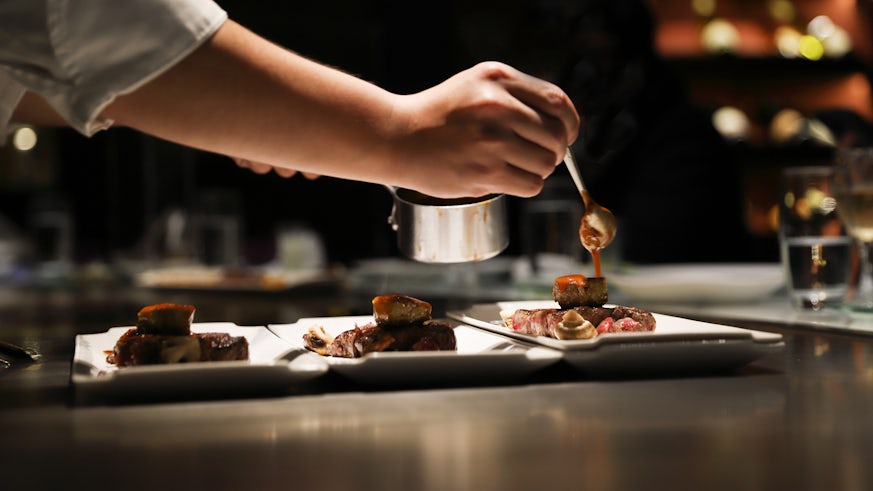Extreme violence and abuse commonplace in elite kitchens around the world, study reveals
23 January 2023

Suffering is viewed as a necessary means of elite chefs fulfilling their true potential, Cardiff University research shows.
Conducted across the restaurant industry, academics carried out anonymous interviews with 62 chefs working in Michelin-starred restaurants around the world. The results and analysis, gathered over six years, show how a culture of suffering is central to how individuals form professional identities to gain recognition and respect among their peers.
Chefs spoke of enduring horrific injuries in the workplace:
I slashed my thumb really badly. I couldn’t stop it bleeding, and [name] grabbed my arm just – he put it [my thumb] on the stove top and cauterized it. And I was just like screaming. And he’s like ‘there you go, stopped the bleeding, hasn’t it?
They gave examples of being attacked, with one interviewee describing having a bread knife held to his throat by a senior chef, while another spoke about endurance tests or games in the kitchen:
They would get you to put your hand into flour, then into it eggs and then into breadcrumbs. . . . and the game was who could hold their hand in the fryer the longest, with the breadcrumb mix until you – until – before you feel it burning and take it out.
Researchers spoke to chefs at all levels of the industry – from Chef Patrons, Executive Chefs and Head Chefs to Sous Chefs and Stagiaires – or Trainee Chefs. As well as the UK, visits were made to kitchens in France, Italy, Switzerland, Germany, Belgium, Demark, China, Australia, Singapore and the USA.
The results also reveal the physical and mental toll these working conditions could have:
The environment is very stressful . . . If you make mistakes, you get food thrown in your face . . . So the body assumes that it’s going to war. So before I was starting work, I was vomiting, diarrhoea and then going to work and doing a 19–20 hour shift.
But the academic team, based at Cardiff Business School, say the findings show that incidents of violence and abuse were viewed as a way of building standing in the industry, demonstrating an individual’s work ethic and character: “If people see certain restaurants on your CV they think: ‘wow, he stuck it out for a year?! Wow. He’s hard as nails. He can put up with some punishment. I can work him harder.”
Lead author Dr Robin Burrow said: “What we found during the course of our research was that this extreme suffering had a unifying effect on the people working under these conditions. Chefs who neglected to suffer had little claim to membership of the culinary community, in the truest sense. They were not true and proper chefs.”
“The widely repeated point among those we interviewed was that there was little to be had from a closeted, safe, low-pressure, low-stress work ethic or environment; That one does not become a great chef by taking it easy, or working in easy places. Rather, that to become all that one can be, a chef should subject themselves to every hardship on offer; this being, as one chef described, the pathway to enlightenment.”
Co-author Dr Rebecca Scott said: “Our research shows how the ability to endure suffering was bound up with notions of employability, character and worth. And, how the suffering chefs endured underscored collective identities, catalysed mutual recognition and bound chefs together in tight brigades. The cumulative insight that emerges is one in which suffering is central to chefs’ understanding of who they are both as individuals, and as a broader social collective.”
Co-author Professor David Courpasson added: “Suffering can not only be transformative of the person, but also implicative of who they are.”
The research, Bloody suffering and durability: How chefs forge embodied identities in elite kitchens, is published in the journal Human Relations.


